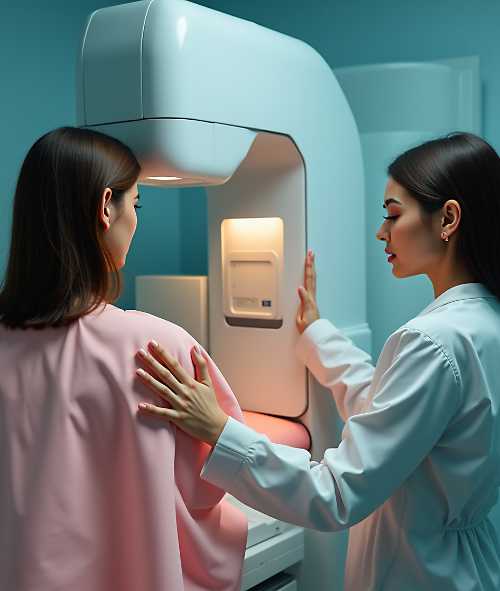Dementia and Alzheimer’s
Understanding the Differences
Dementia is not a single disease—it is a broad term used to describe a group of conditions that involve a decline in memory, thinking, and behavior severe enough to interfere with daily life. Alzheimer’s disease is the most common form of dementia, accounting for about 60–80% of cases, but other types include vascular dementia, Lewy body dementia, and frontotemporal dementia. While these conditions may look similar on the surface, their causes and progression can vary.
In Western medicine, dementia is typically diagnosed through cognitive testing, neurological imaging, and an evaluation of behavioral symptoms. Alzheimer’s, for instance, is associated with abnormal protein buildups (amyloid plaques and tau tangles) that damage and eventually destroy brain cells. Vascular dementia often follows strokes or reduced blood flow to the brain. Lewy body dementia can include movement issues and vivid hallucinations. Despite differences in their cause, most types share symptoms like confusion, disorientation, language difficulty, and mood changes.
When to Consider Adding TCM
You might explore Traditional Chinese Medicine (TCM) as a complement to Western care if:
- Medication alone isn’t easing symptoms like poor sleep, agitation, or fatigue.
- You want gentle, non-drug options for emotional support or calming routines.
- A loved one seems disconnected or withdrawn, and you’re seeking more holistic support.
- The caregiver is feeling depleted and needs help managing stress or sleep.
- You’re interested in prevention or early-stage care, not just crisis response.
- You value a personalized, body-mind-spirit approach that adapts over time.
TCM is not a replacement for diagnosis or emergency care, but it can enhance comfort, mood, and daily rhythms—especially when conventional tools feel limited.
Conventional treatments aim to slow the progression and manage symptoms. Medications such as cholinesterase inhibitors (donepezil, rivastigmine) may help with memory and cognition in some patients, though their effects are modest. Behavioral symptoms are sometimes addressed with antidepressants or antipsychotics, though these must be used carefully. Supportive care—routines, physical safety, and caregiver training—is often the most important part of treatment.
In contrast, Traditional Chinese Medicine (TCM) approaches dementia from an entirely different angle. Instead of focusing on brain pathology, TCM looks at the whole body system, particularly the health of the Shen (spirit), which reflects consciousness and awareness. Memory, emotional steadiness, and cognition are seen as functions of the heart, kidneys, spleen, and liver. When these systems become imbalanced—due to aging, illness, emotional strain, or inherited weakness—the Shen can become disturbed.
Rather than categorizing a patient as having “Alzheimer’s” or “vascular dementia,” a TCM practitioner would identify underlying patterns such as:
- Kidney Essence Deficiency – seen with memory loss, fatigue, and premature aging.
- Heart Blood Deficiency – linked to poor memory, insomnia, and emotional fragility.
- Phlegm Obstructing the Orifices – reflected in confusion, sluggish speech, and cloudy awareness.
- Liver Qi Stagnation – associated with emotional withdrawal, mood swings, or sudden outbursts.
Treatment in TCM does not focus on halting disease progression in the conventional sense. Instead, it supports the person through gentle regulation of body and mind. Acupuncture may help with sleep, anxiety, or agitation. Herbal therapy is tailored to nourish the appropriate organ systems and clear internal blockages. Lifestyle advice—warm meals, gentle walks, breath practice—can create stability in a shifting world.
Importantly, TCM does not compete with biomedical care. Many patients and families choose to combine both approaches: medications to manage symptoms, and TCM therapies to improve comfort and preserve quality of life. For example, someone with early-stage dementia may take medication to support cognitive function while receiving acupuncture to regulate sleep and calm emotional turbulence. In later stages, herbal formulas may help ease restlessness or reduce caregiver burden by improving nighttime sleep patterns.
While research on TCM and dementia is still growing, early studies show promise for acupuncture in reducing behavioral symptoms and improving emotional regulation. Certain herbal formulas are being investigated for neuroprotective effects. But even without definitive clinical proof, the value of TCM often lies in its ability to offer care when biomedical tools run out of options.
Ultimately, whether labeled “Alzheimer’s” or “dementia,” these conditions call for a broad view of care. Western medicine provides critical diagnostic tools and structure. TCM offers insight into the individual experience—addressing fatigue, fear, disconnection, and the human need for peace. Used together, they provide a more compassionate path forward for patients and families alike.


